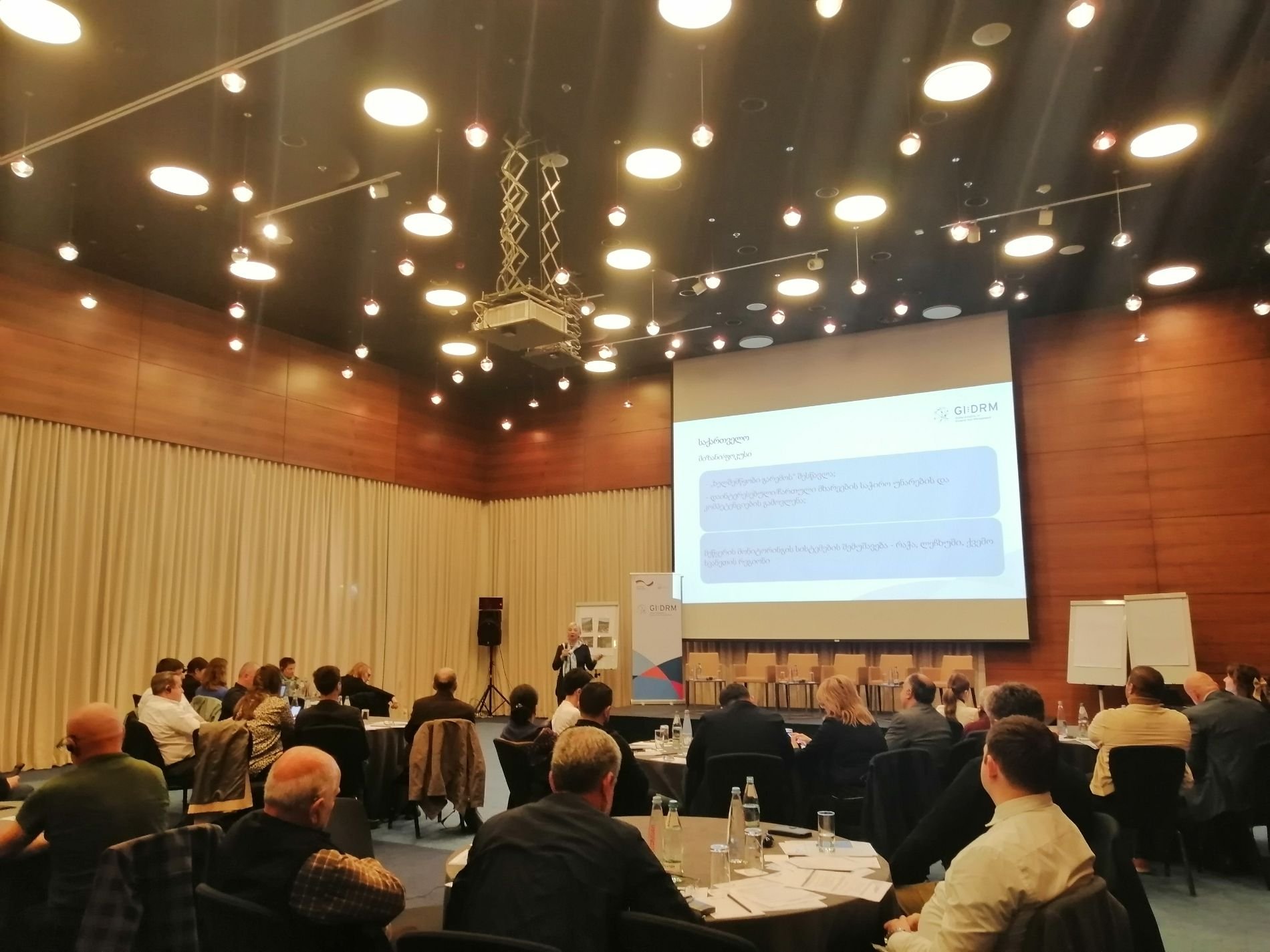Connecting risk-informed development dots across Georgia

On May 2nd 2023, relevant stakeholders gathered in Tbilisi to discuss potential opportunities and entry points for mainstreaming risk-informed decision-making and planning processes in Georgia, among others, representatives from the Ministry of Regional Development and Infrastructure, the Ministry of Economy and Sustainable Development (MoESD), Ministry of Education, Science, Culture and Sport of Georgia (MoE), the National Environmental Agency (NEA), as well as from the office of State Trustee to Racha-Lechkumi and Kvemo Svaneti Region, Lentekhi, Tsageri, Oni and Ambrolauri municipalities, academia, emergency management services, national security council, civil society organizations, and international organizations.

©GIDRM/GIZ
One of the recurring themes of the workshop was the importance of integrating disaster and climate risk considerations into planning and decision-making processes across sectors and administrative levels. During the panel discussion, invited speakers from NEA, MoE, UNDP, State Trustee to Racha-Lechkhumi and Kvemo Svaneti and GIZ, emphasized the topic of risk data as a basis for risk-informed decision-making. Engaging young professionals in scientific research and technical degree programs to ensure a continuation of high-quality risk assessments in the future was one of the challenges highlighted. Speakers also stressed the need for a holistic approach to risk management, considering risks as an integral part of development and its complex and interconnected systems.
To develop ideas to support Georgia’s shift towards a more risk-informed development (RID), participants engaged in group discussions focusing on the components of the enabling environment for RID, i.e. information and knowledge, politics and regulations, organizational capabilities, finance and resources, partnership and cooperation, and people and culture. Some of the key opportunities and actions identified were:
- to use local knowledge as communities know best the history of risks;
- to Implement more risk-informed programs and identify RID champions to subsequently be used for policy and advocacy work to institutionalise RID;
- to clarify roles and responsibilities on risk management within the departments and institutions;
- to engage young people, building their knowledge and skills as well as mobilise sufficient financial resources;
- to strengthen financial systems to consider systemic and long-term risks;
- to systemize information exchange and coordinated work for mutual support,better responsiveness and strengthening sectoral linkages and cross-sectoral programs.
A special feature showcased during the event was an informational video to raise awareness on a more systemic understanding of risks in Georgia targeting the broader public. The video highlights the importance of collective efforts, shared responsibility, and continuous collaboration between decision-makers, communities, and relevant stakeholders to build a safer and more risk-informed future.

The workshop emphasized the need to better integrate risk considerations in development decisions in different sectors and identified potential opportunities and partnerships for mainstreaming RID approaches. It outlined next steps to support a shift towards a more risk-informed development approach. The active participation and cooperation among various stakeholders demonstrated the commitment to progress and development in Georgia's risk management practices.